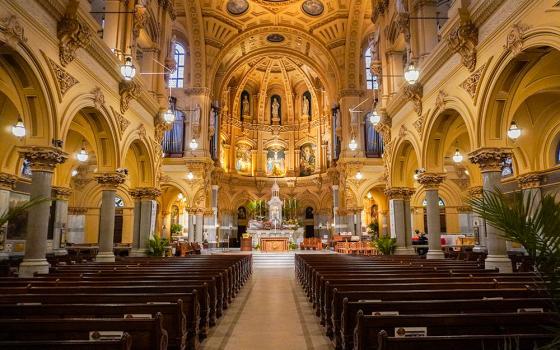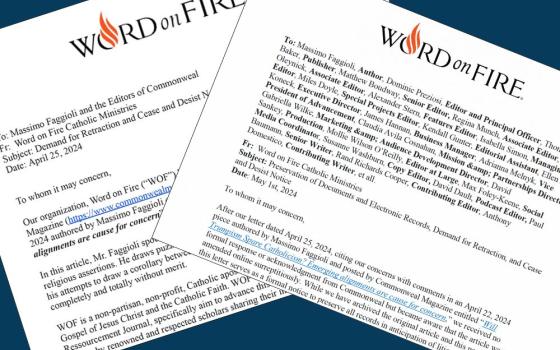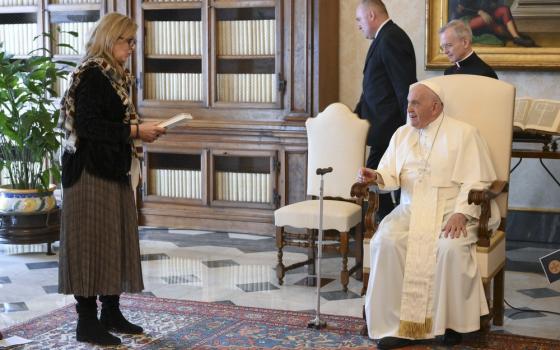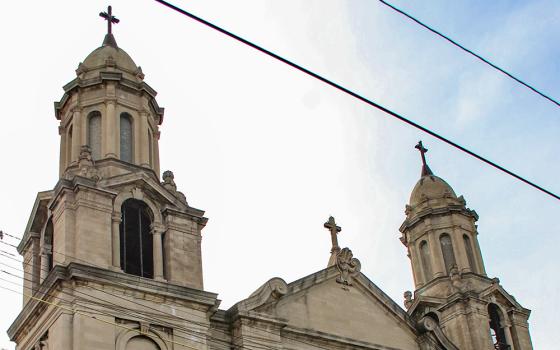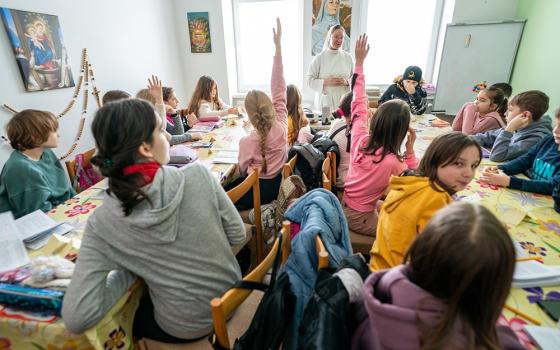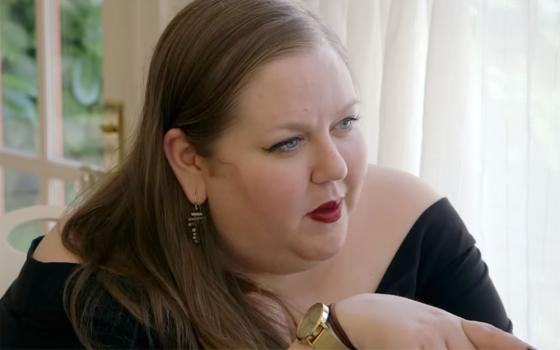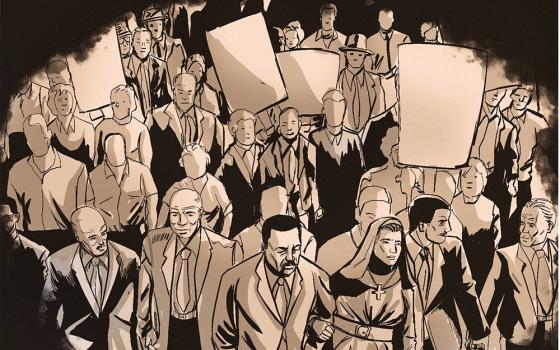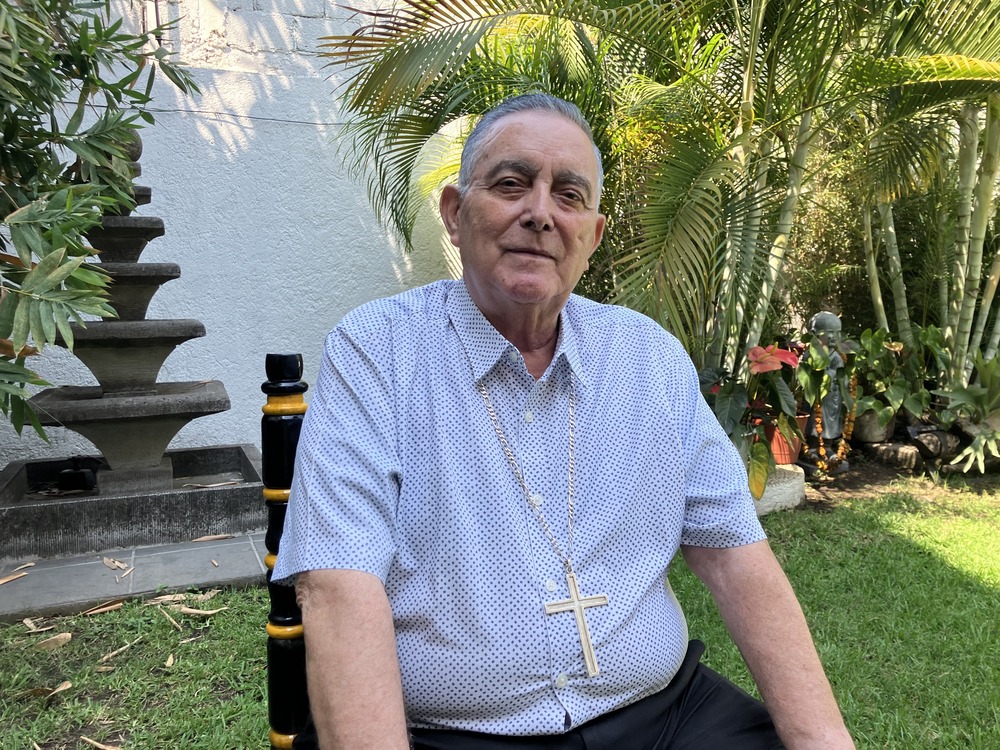
Retired Bishop Salvador Rangel Mendoza of Chilpancingo-Chilapa, Mexico, poses outside his residence in Jiutepec April 1, 2024. The Mexican bishops' conference has questioned accusations of untoward behavior by Bishop Rangel amid conflicting accounts of his disappearance and subsequent reappearance in a hospital bed — with the conference secretary general saying the situation had assumed political overtones. (OSV News/David Agren)
The Mexican bishops' conference has questioned accusations of untoward behavior by retired Bishop Salvador Rangel Mendoza of Chilpancingo-Chilapa amid conflicting accounts of his disappearance and subsequent reappearance in a hospital bed — with the conference secretary general saying the situation had assumed political overtones.
"This situation has taken a turn toward a political orchestration that is far from seeking truth and justice," secretary general of Mexico's bishops' conference, Bishop Ramón Castro Castro of Cuernavaca, said in a May 5 video.
"In these times of fake news and polarization, we deeply regret that speculations are being made lightly about the appearance of Monsignor Salvador Rangel, which, far from clarifying (things), confuse people of good will and harm those who are currently unable to share their experience," Castro said.
Rangel, who is well known in Mexico for his work brokering truces with drug cartel bosses, disappeared April 29 and reappeared two days later in a public hospital in the city of Cuernavaca, 50 miles south of Mexico City.
The circumstances of his disappearance have provoked controversy as the Morelos state prosecutor and local politicians — who analysts and press stories describe as being at odds with each other — offered conflicting accounts.
Morelos state prosecutor Uriel Carmona said Rangel was the likely victim of an express kidnapping, in which victims are abducted, robbed and released without a ransom being requested. He also revealed that toxicology reports showed benzodiazepines and cocaine in his system, suggesting he had been drugged.
But state public security commissioner José Antonio Ortiz Guarneros disputed those claims, telling reporters May 2: "The prosecutor must demonstrate why it was an express kidnapping. (People) in politics are taking advantage of this to undermine security in the state."
He continued, "As far as we know, (the bishop) voluntarily entered the motel, with a person of the same sex, and that person left. But that is what we know, because we went to ask for information, however the prosecutor’s office had already arrived and they did not allow us."
A hospital intake report signed by a social worker was also leaked to the media. The report said paramedics found the bishop "unconscious and naked" in a hotel room. The bishops' belongings brought by paramedics included clothing, shoes, "lubricating gel and a small black case with six condoms (one open) and five blue pills," according to the newsmagazine Proceso. "No identification, nor money or any object of value was collected."
Details of the case appear confusing, along with the political dispute between the prosecutor and the Morelos state government. The state government — with help from the federal government — has unsuccessfully attempted to remove Carmona, whose office is autonomous.
Rangel left his home in suburban Cuernavaca — where he has resided since retiring as bishop of Chilpancingo-Chilapa in 2022 — on the morning of April 27. He left without his mobile phone, according to media reports. Luis Gasca, Rangel's attorney, told journalist Ciro Gómez Leyva that the prelate stopped at a convenience store to purchase a drink "and that’s where he lost consciousness."
Interim Gov. Samuel Sotelo Salgado told reporters that Rangel was spotted at a pizza parlor in a community south of Cuernavaca on the evening of April 27, where he met with an employee. He also said that two bank machine withdrawals were made that day, "but there are no witnesses or cameras that saw him kidnapped."
Mexican media outlets cited the governor and security sources saying the Cruz Roja Mexicana, Spanish for Mexican Red Cross, which provides ambulance service, transported Rangel from a motel charging patrons by the hour to a public hospital.
The Red Cross chapter in Cuernavaca, however, released a statement May 3, saying it had no records of its ambulances transporting Rangel, "thus contrasting the version that the bishop had been found in a hotel and transferred to the general hospital of Cuernavaca," Infobae agency reported.
Advertisement
Rangel has been released from the hospital and is being cared for by relatives, according to a person familiar with the situation. He is suffering from high blood pressure and post-COVID symptoms, according to media reports.
"Once Monsignor Salvador Rangel has the capacity to make a statement, we will do so in an institutional manner and rest assured that eventually, in line with our canonical norms, we will act accordingly," Castro said in his May 5 video.
"We urge the competent authorities to carry out an exhaustive, objective, impartial, fair and illuminating investigation that contributes to justice," the prelate added.
Rangel's disappearance sparked widespread concern, along with fears for the worst, as he is known for his dialogues with drug cartel leaders in the state of Guerrero — which unfolds to the south of Mexico City and Morelos and takes in the glitz of Acapulco, impoverished indigenous communities and the country's heroin-producing heartland.
The four bishops of Guerrero state helped broker a deal with drug cartel bosses in February.
Rangel, however, has been outspoken on the ineffectiveness of government security policy and alleged that politicians in Guerrero — and beyond — often colluded with drug cartels.
"At least right now in Guerrero, all the elections in my area are almost settled," he told OSV News April 1, referring to drug cartels settling on candidates to back.
President Andrés Manuel López Obrador said he welcomed the Guerrero bishops' initiatives to pacify the state. Some of the president's partisans in Guerrero objected, however.
Félix Salgado Macedonio, a senator from Guerrero for the ruling Morena party and father of state Gov. Evelyn Salgado, attacked the bishops for intervening, saying public security was a matter for the state.
He added caustically, "There are bishops that represent God and the devil, we no longer know who they represent."
The controversy engulfing Rangel comes as Mexico prepares for June 2 elections, in which the ruling Morena party has campaigned on the proposition that Mexico has become less violent under its administration and chastised voices countering that narrative.
Morena candidate Claudia Sheibaum, who leads all polls, called the security diagnosis in a bishops' conference peace proposal "pessimistic" but later met with the conference at its biannual meetings.
Castro said at a March press conference that the relations between the bishops' conference and president were cordial, but not close.
He said in a May 5 homily: "Thousands of bots, of persons interested in damaging the church’s moral authority, which thanks to God has regained strength, have seen the opportunity. Thousands! Thousands! It’s a factory of bots from 'you know who' which is attacking the church."
Mexican media interpreted "you know who" as President López Obrador, who has used the term in political advertising. A spokesman for Castro said it referred more to Morena and the "government apparatus."

